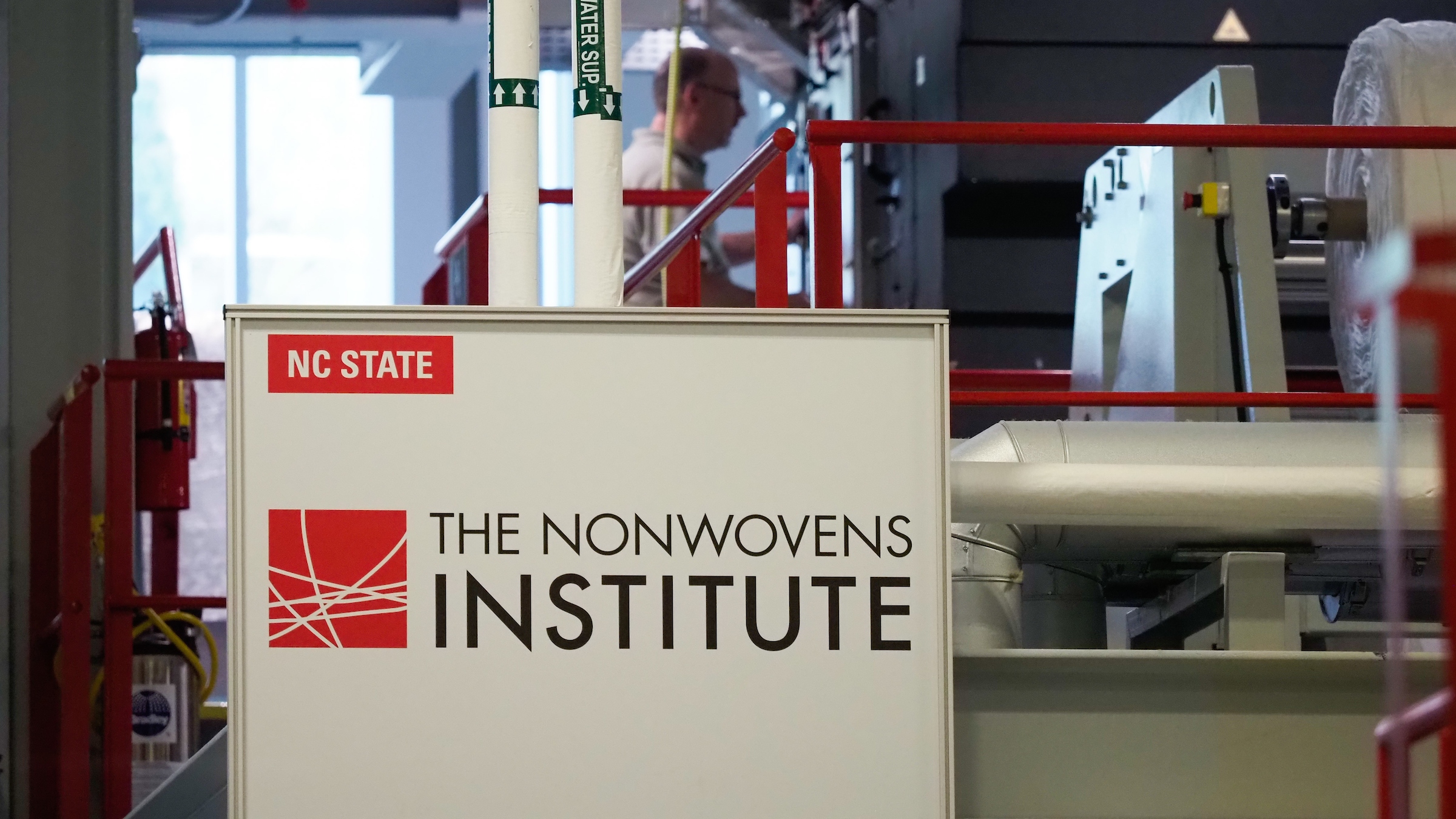NC State and North Carolina industries step in to provide massive production of new N95 mask and materials

The Nonwovens Institute at North Carolina State University (funded by NWI) has stepped in to convert much of its equipment over to production of a new material that involves just a single ply mask, an important innovation that will allow the team to begin production of massive amounts of materials for masks. This is documented in the following video.
Professor Pourdayhimi in the video notes the following:
“The masks are composed of two common nonwovens – the filter layer composed of meltdown fabric, and a spunbound fabric that provides support for the meltdown in all the PPE’s today. We have large scale pilot facilities for spundown and meltdown, and have a lot of unique spunbound machiner which has a lot of capacity to help build filters. We can make a lot, and typically we talk about kilograms per hour, and we are running about 2000 metres per hour, and 12 hour shifts. We make about 20,000 meters per day of the material, and seeking to up production because of the need that exists. If each meter of fabric makes 25 masks, this equates to about 1000 masks per minute, and about 500,000 masks per day. We have a number of partners who have the abilities to take these media and convert them into masks, and are in dialogue. We are looking at NC and beyond and there is a shortage of automated capacity, and the NC State university purchased two machines to deliver in 3 weeks, and we set them up and begin using our own media and converting them to media. This is incredible in having the community together, and we will be talking to DHHS and NC hospitals. We are reachin out to NC producers to invest in capacity and changing the way they produce things to produce filters that will be useful during this crisis, and expand the amount of materials available.
The bottleneck is in the cut and sew operations. A large number of apparel companies moved manufacturing offshore in the past twenty years. The headquarters of many of these companies, e.g., Hanes and VF, are still in the US, but the supply chain is much longer. But these companies are ramping up everything they have and control quickly. Hanes is making the masks from the Nonwovens Institute fabrics now. Being able to mold these masks with automated machinery rather than labor-intensive cutting and sewing as Behnam shows in the video will increase production dramatically.”
It is fantastic to see the entire NC State community and our local manufacturing partners in North Carolina come together to support healthcare works in the state and throughout the country!